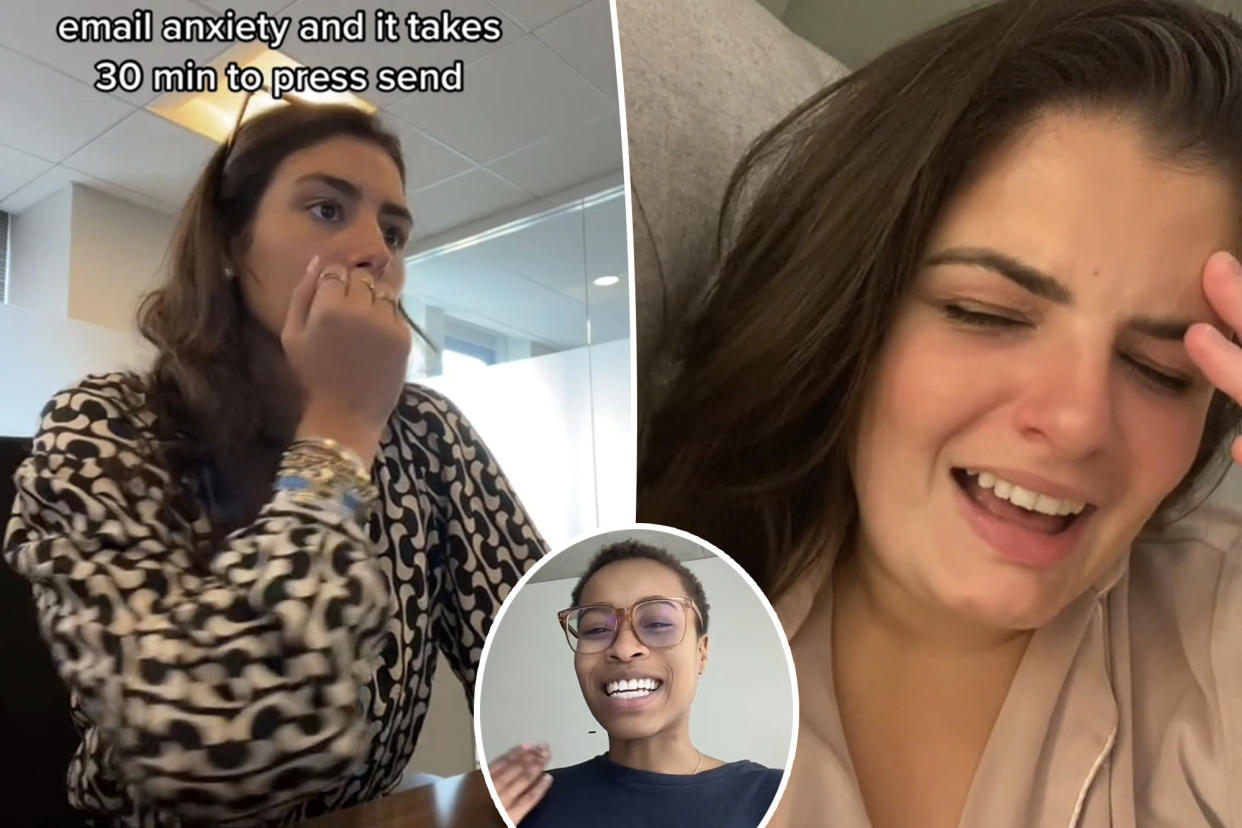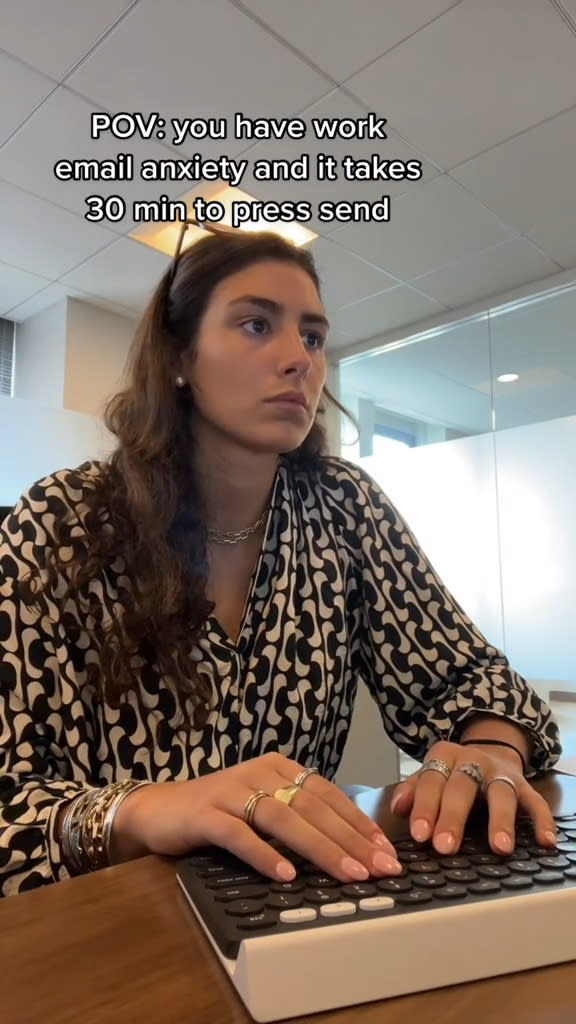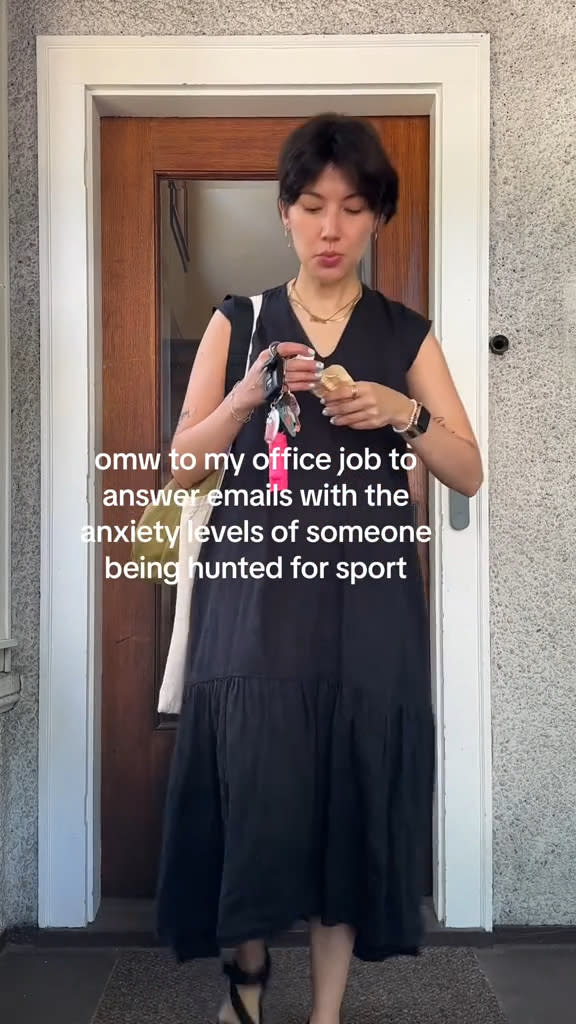Gen Z has ‘email anxiety’ at work, struggling to cope with 1,000s of unread messages: ‘Hardest part of my job’

It’s just not clicking for them.
For millennials and older, the “You Got Mail” notification rarely incited stress.
In fact, most folks over thirty can still remember feeling a flush of excitement upon receiving an email — be it from work, family, friends or even advertisers — during its early stages in the early aughts.
But to the digital natives of Generation Z, getting electronic correspondence, namely from the office, is apparently as anxiety-inducing as getting sentenced to the electric chair.

“Gen Z appears to struggle the most with email stress,” Esteban Touma, a linguistics and culture expert at language learning platform, Babbel, told CNBC. “[They stack] up a huge quantity of unread emails due to a combination of factors.”
Babbel researchers recently conducted a survey of 2,000 U.S. office workers to determine that employees between the ages of 18 to 24 are the most likely to let emails pile up.
The findings indicated that more than a third, 36%, of Gen Z professionals say they have over 1,000 unread emails in their inbox, compared with 18% of office workers overall.
For youngsters on the job, the accumulation of unanswered missives creates a hefty layer of pressure to open, read and properly respond to the messages. And once they finally reply, a whopping 1 in 5 Gen Zs report “very often” regretting the emails they send.

The formality of emailing, compared to the laissez-faire nature of texting or social media direct messaging, too, makes twenty-somethings feel uncomfortable.
“Gen Z’s communication preferences are heavily influenced by the prevalence of instant messaging platforms and social media,” said Touma. “Platforms like Snapchat and Instagram, for example, prioritize instantaneous communication, informality and visual cues.”
“The structured and formal nature of email communication may feel unfamiliar and more complicated to many [Gen Zers],” the insider added.
And he’s right — the kids are not alright.

“[On my way] to my office job to answer emails with the anxiety levels of someone being hunted for sport,” a young 9-to-5er penned in the closed-caption of her TikTok clip as she sucked down an applesauce before clocking into work.
“Email anxiety is so real,” gripped a separate staffer in another viral video. “The hardest part of my job is writing emails…It will take me 30 minutes to draft and send a three-sentence email.”
“I can’t live like this,” she groaned.
Similar sentiments were echoed by equally shaken laborers online.
Unsurprisingly, emails are far from the only workplace inconvenience that grinds Gen Zs’ gears.

In addition to canceling the use of the thumbs-up emoji due to its “hostile” connotations, whippersnappers at work have also banned the peach cartoon icon, citing its inappropriate undertones.
The demographic doesn’t want to be stuck behind a desk on a traditional eight-hour workday schedule, either.
“It is not something I am willing to do,” barked an unflinching Gen Z, who said he’d only commit to accepting jobs that offer 9 a.m. to 2 p.m. shifts.
But, when it comes to email anxiety, Touma warns that the stress can cause burnout in corporate fledglings.

“Unlike older generations who may have developed strategies for compartmentalizing work and personal communication, Gen Z may struggle to establish boundaries,” he said.
The experts suggest that more seasoned pros have had more time to strike a healthy work-life balance around handling emails, whereas big business newbies aren’t yet as savvy.
An expectation to respond quickly to emails and other messages “can blur the boundaries between work and personal life,” he said. “This constant connectivity can contribute to heightened stress levels and feelings of being constantly tethered to work obligations.”
But there’s hope yet for professional pups, according to Touma.
He recommends Gen Zs try responding to urgent messages within an hour or two. For messages that aren’t time-sensitive, answering within 24 hours is “considered courteous and professional,” he advised.
Touma also suggests setting up filters to automatically sort emails by urgency and topic, as well as designating specific times to check and respond to emails throughout the day.
Finally, he urges folks to unsubscribe from any irrelevant email lists and newsletters.

